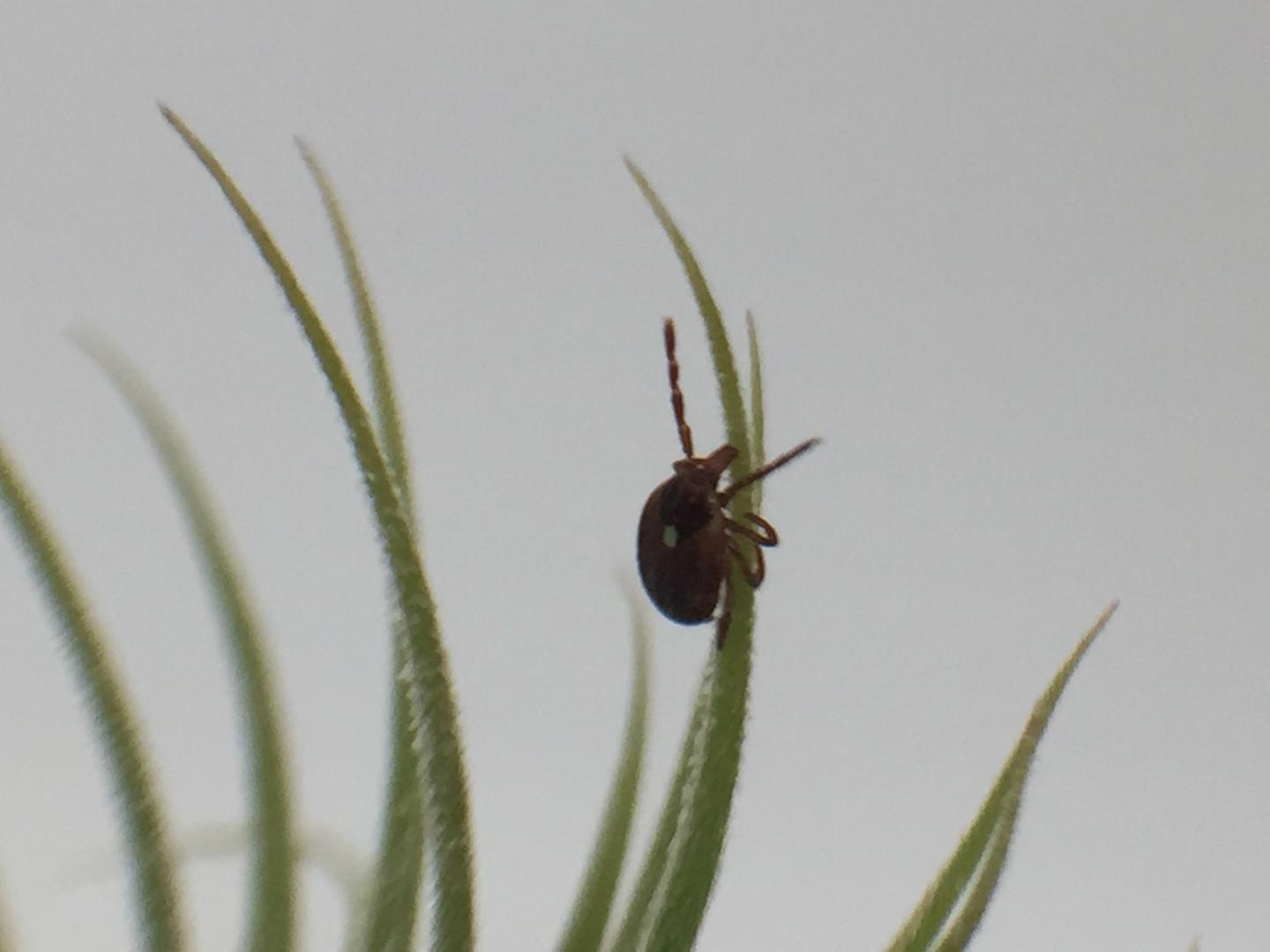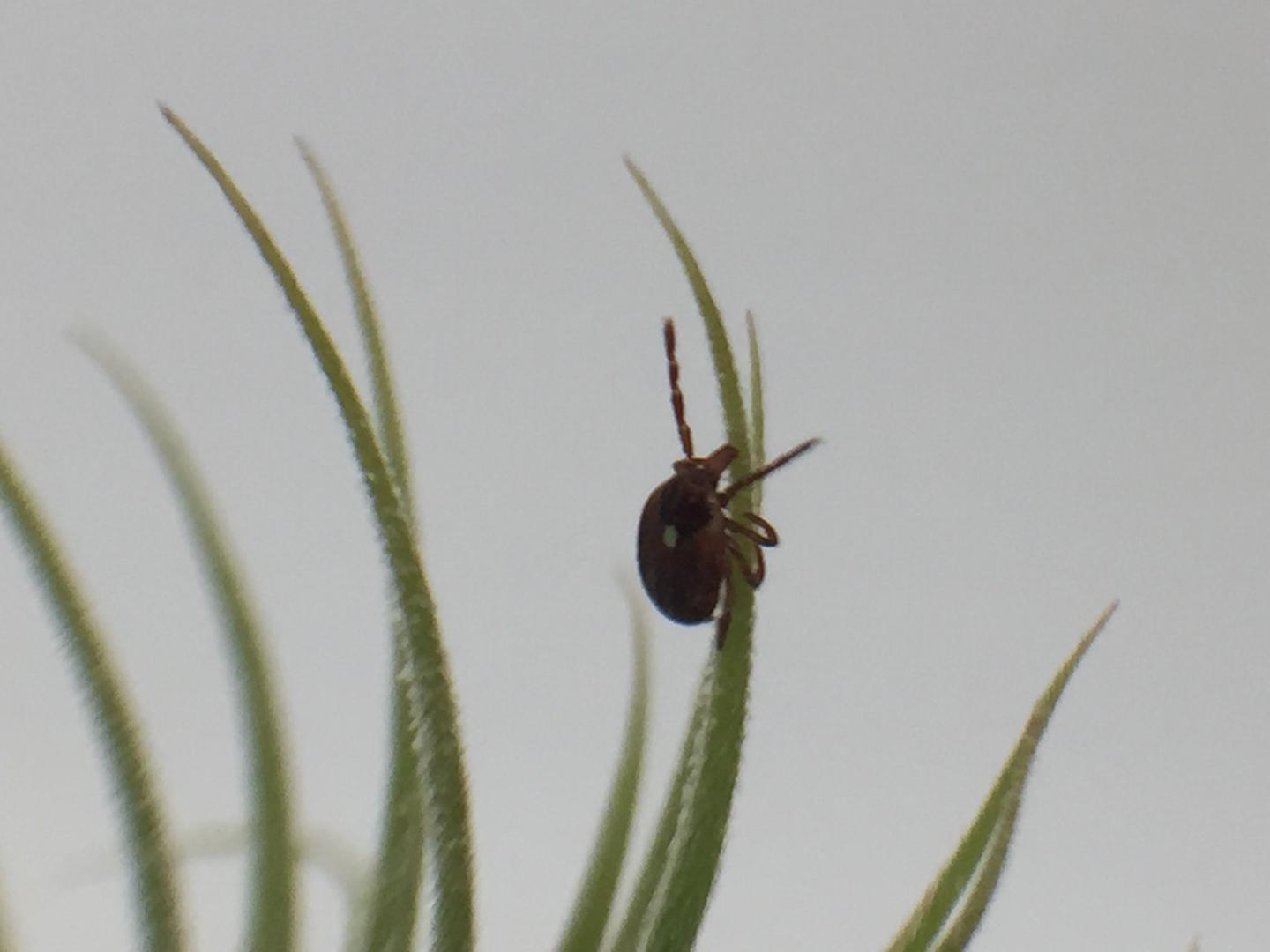
Credit: NIAID
While rare, some people experience recurrent episodes of anaphylaxis–a life-threatening allergic reaction that causes symptoms such as the constriction of airways and a dangerous drop in blood pressure–for which the triggers are never identified. Recently, researchers at the National Institute of Allergy and Infectious Diseases (NIAID), part of the National Institutes of Health, found that some patients' seemingly inexplicable anaphylaxis was actually caused by an uncommon allergy to a molecule found naturally in red meat. They note that the allergy, which is linked to a history of a specific type of tick bite, may be difficult for patients and health care teams to identify.
As the researchers describe in their article published in Allergy, six of the 70 study participants evaluated for unexplained frequent anaphylaxis tested positive for an allergy to galactose-a-1,3-galactose, or alpha-gal, a sugar molecule found in beef, pork, lamb and other red meats. The six adult male participants all had IgE antibodies–immune proteins associated with allergy–to alpha-gal in their blood. After implementing diets free of red meat, none of them experienced anaphylaxis in the 18 months to 3 years during which they were followed.
While the prevalence of allergy to alpha-gal, or "alpha-gal syndrome" is not known, researchers have observed that it occurs mostly in people living in the Southeast region of the United States and certain areas of New York, New Jersey and New England. This distribution may occur because most people with an allergy to alpha-gal, including all six participants evaluated at NIH, have a history of bites from juvenile Ambylomma americanum, or Lone Star ticks.
"Alpha-gal allergy appears to be yet another reason to protect oneself from tick bites," said NIAID Director Anthony S. Fauci, M.D. "Food allergies can range from an inconvenience to a life-threatening condition and pose a serious and growing public health problem that urgently requires more research."
The study authors say physicians may have mistakenly diagnosed these patients as having unexplained anaphylaxis because alpha-gal allergy presents differently from more common food allergies and routine allergy tests do not typically scan for antibodies to alpha-gal. Furthermore, most allergic reactions to common food allergens, such as peanuts or crustacean shellfish, begin about 5 to 30 minutes after a person is exposed. For unknown reasons, allergic reactions to alpha-gal may occur between 3 to 6 hours after red meat consumption, making it difficult to identify what substance caused the reaction. Some episodes may even begin overnight when a person is sleeping, which is a particularly uncommon presentation for anaphylaxis.
"This unusually long time gap between a meal and an allergic reaction is probably a big reason that alpha-gal allergies are often initially misdiagnosed," said Dean Metcalfe, M.D., chief of the Mast Cell Biology Section in the Laboratory of Allergic Diseases in NIAID's Division of Intramural Research. "If you start to have trouble breathing in the middle of the night, you probably are not going to blame the hamburger you had for dinner."
Study co-author and allergy researcher at the University of Virginia Thomas Platts-Mills, M.D., first discovered the connection between the alpha-gal syndrome and exposure to Lone Star tick bites in 2002. He recognized that patients who had unusual allergic reactions to the cancer drug cetuximab, which contains alpha-gal molecules, also shared a history of Lone Star tick bites. Researchers are still unsure how Lone Star tick bites lead to alpha-gal allergies.
"We often think of ticks as carriers of infectious diseases, such as Lyme disease, but the research strongly suggests that bites from this particular species of tick can lead to this unusual allergy," said Melody C. Carter, M.D., staff clinician in the Mast Cell Biology Section in the Laboratory of Allergic Diseases in NIAID's Division of Intramural Research, who co-authored the study. "The association is increasingly clear, but we still need to discover exactly how these two events are linked and why some people with similar exposure to tick bites seem to be more prone to developing alpha-gal allergy than others."
Among the study participants with alpha-gal allergy evaluated at NIH, two also had a rare condition called indolent systemic mastocytosis, or ISM. People with ISM have an abnormally elevated number of mast cell, an immune cell type which contributes to anaphylaxis and other allergic symptoms by releasing histamine and other chemicals that cause inflammation. The participants with ISM experienced more severe reactions than those without ISM, even though they had lower levels of antibodies to alpha-gal. This finding builds on evidence that mast cell abnormalities may increase the likelihood of people developing allergies and experiencing severe reactions, including allergies and reactions to alpha-gal.
###
For more information about the unexplained anaphylaxis trial, see ClinicalTrials.gov using identifier NCT00719719.
For more information on tickborne diseases, please visit the NIAID Tickborne Diseases web portal.
Reference: M Carter, et al. Identification of alpha-gal sensitivity in patients with a diagnosis of idiopathic anaphylaxis. Allergy DOI: 10.1111/all.13366 (2017).
NIAID conducts and supports research–at NIH, throughout the United States, and worldwide–to study the causes of infectious and immune-mediated diseases, and to develop better means of preventing, diagnosing and treating these illnesses. News releases, fact sheets and other NIAID-related materials are available on the NIAID website.
About the National Institutes of Health (NIH): NIH, the nation's medical research agency, includes 27 Institutes and Centers and is a component of the U.S. Department of Health and Human Services. NIH is the primary federal agency conducting and supporting basic, clinical, and translational medical research, and is investigating the causes, treatments, and cures for both common and rare diseases. For more information about NIH and its programs, visit http://www.nih.gov.
Media Contact
Judith Lavelle
[email protected]
301-402-1663
@NIAIDNews
http://www.niaid.nih.gov
Original Source
https://www.niaid.nih.gov/news-events/niaid-scientists-link-cases-unexplained-anaphylaxis-red-meat-allergy http://dx.doi.org/10.1111/all.13366





